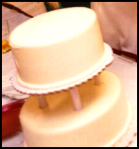
photy.org
I was going to say no, I didn’t fall off a cliff, but I – uh, actually, did. And though I lay on the rocks, wishing nothing more than to be wiped off the planet, I somehow made it back up, half-carried by angels, broken bones and all. The bruises linger, but the bones, to my wonder, have healed and the bleeding stopped. I wasn’t done for. As long as I had breath, as long as I could form my words, the world had a place for me. Like the page in this year’s California’s Best Emerging Poets anthology. And the classroom in the private university where I taught composition this semester. I had walked past that door many times early this year, wondering why a job at a homeschool center across the street wasn’t working out, when God had my name on that door, His writing on the wall. We launched Drummer Boy this Fall. (After 12 years of indentured servitude coupled with preteen warfare, I was done. I practically threw him over the school fence.) It was time for me to launch, too. I enjoyed the teaching immensely, and although the steep learning curve on school protocols, the grading platform, and all that grading made for a ride under a burst dam, I didn’t feel mentally challenged. And the impossible hunger pangs for the writing – to do it, not just teach it – didn’t help. I’d been away from the page too long.
In thinking through what the upcoming years might look like for me unchained to my son, I discovered the other night a generous, astonishing opportunity a prestigious institution had extended me on LinkedIn months ago. Two, in fact, when I failed to respond. I glossed over the solicitation before tearing up the golden ticket and tossing it not only because the timing was implausible for me as a mother, but because it was such an amazing invitation I couldn’t wrap my head around it. Then there was my age: my son’s long-awaited self-sufficiency would put me over 50. Yes, I want to build a career with the teaching and writing, but I’m supposed to start tiring after 50, not go pursuing the academic equivalent of a rhino chase on an African safari. But Awesome Friend #1 started taping up the ticket: It seems doable, she wrote. And Awesome Friend #2 pressed it in my hand : Why limit yourself? Who cares how old you will be?
Turns out, I was the only one who cared. I was the one who intended on losing steam after 50. And as the playback on my life revealed, I was the one who’d chosen the classrooms with the low ceiling as a student all these years, afraid to prove I really wasn’t smart or capable. But we won’t find our greatest self where it’s safe or comfortable. Retired Navy SEAL and seemingly superhuman athlete David Goggins says we have to suffer. He named every fear he could before running straight into each one because it was only when he had to decide if he would go on with the broken leg and bloody hands that he met with his highest self, not when he was downing a dozen doughnuts on the couch at 300 pounds. He discovered “the answers are all in the suffering.” Accustomed to them, I am very good at anguish and affliction. I am less skilled at mapping the endurance into lasting victory beyond survival. Hope is not a plan. And no matter how we might dress it with color on a vision board, hope glorified, called a dream, will remain nothing more than a pretty picture without concrete day-in, day-out goals we move toward both physically and mentally.
I am crawling out of a brutal year, one in which I faced the hardest truths about myself. And yet grace has met me in the dungeon, thrown open the doors, and held up a breathtaking life that is mine for the taking if I will shed the self-doubt and get to work. At just a few words from friends who wouldn’t let me shortchange myself, my life took on sudden definition. So I’ve drawn up a game plan that will reorder and fuel my life, the things time and stress had gotten in the way of, but that now tangibly serve a larger purpose, from organizing my house to working out again, studying, and writing. No longer am I sitting and hoping that my writing will be good enough and that the future will favor me. I’m gettin’ up to go git it. I will make my work good enough, silencing the imp on my shoulder that’s whispered all my life: but there are so many writers better than you. I shoved Goggins’ book in her face and refuse to hear her out anymore. I couldn’t care less who’s over me or in front. I will continue to write as though my life depends on it because it does. God has shown me that the works I have published and the classes I have taught are only a prelude to what He has in store if I will reach for the life that is bigger, so much bigger, than my failings and my fears.










